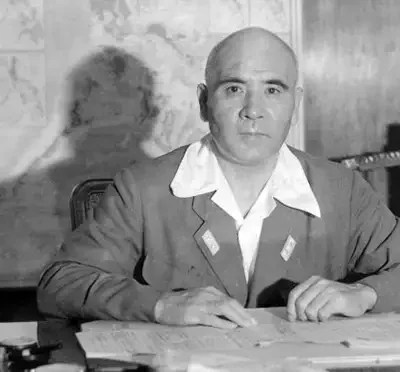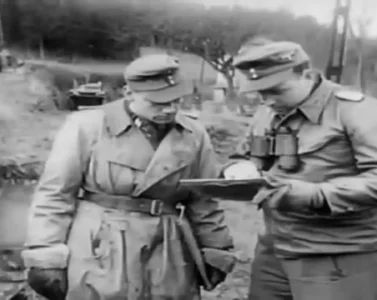- Military History
- Biographies
- Militarians Biographies
- General Masaharu Homma
General Masaharu Homma
General Homma was one of the most complex military leaders in the Japanese army
Masaharu Homma was a lieutenant general in the Imperial Japanese Army during World War II. Homma commanded the Japanese 14th Army, which invaded the Philippines and perpetrated the Bataan Death March. Homma was born on Sado Island, in the Sea of Japan, off Niigata Prefecture and entered the military at an early age.
He developed strong leadership qualities and was known for his creative, emotional side and for his military bearing. He graduated in the 14th class of the Imperial Japanese Army Academy in 1907, and in the 27th class of the Army Staff College in 1915. Homma had a deep respect for and understanding of the West after having spent eight years as a military attaché in the United Kingdom. In 1917, he was attached to the East Lancashire Regiment, and in 1918 served with the British Expeditionary Force in France, being awarded the Military Cross.
General Masaharu Homma was one of the most complex military leaders in the Japanese army. Intelligent and introspective, he vehemently opposed going to war with the United States and Great Britain in the belief that Japan could not win an extended conflict against such a dedicated military force.
Homma was not an advocate of the extreme nationalism that infected the Japanese military in the 1930s, and this led to his being sent to China to command the Tientsin Defense Army, then to Formosa. During this period, Homma continued to crusade against a war with the United States. When such a war seemed inevitable, Homma blamed Hideki Tojo, for whom he felt nothing but contempt.
When ordered to take Luzon, Homma was told he had two divisions and fifty days to accomplish the task. It was assumed that the U.S. and Philippine troops there would stand and fight, so Homma's schedule was thrown off when they instead retreated to Bataan and then Corregidor. Unwilling to deviate from his orders (he did so but reluctantly), Homma ordered his troops to follow and eliminate the retreating defenders, a decision that added several weeks to his assignment. The abuse of prisoners after that campaign would eventually lead to Homma's being tried for war crimes.
Homma's troops took Manila as scheduled on January 2, 1942, but he did not receive the surrender of Bataan until April 9 and that of Corregidor until May 6. Though his campaign ultimately succeeded, Homma was relieved of command for going over schedule and ordered home to Japan, where he spent the rest of the war with little to do.
At the end of the war, Homma was arrested and charged with war crimes related to atrocities committed during the Bataan Death March. He maintained the atrocities had been committed by underlings (primarily his chief of staff, Colonel Masanobu Tsuji) assigned to handle the large number of prisoners after the capture of Bataan while he concentrated on taking Corregidor, and that he had not known about the Bataan Death March until after the war.
Homma was found guilty and sentenced to death by hanging. However, a plea from his wife to General Douglas MacArthur resulted in a change to execution by firing squad, which was considered more honorable for a man of his stature. Homma was executed on the 3rd of April 1946.
General Douglas MacArthur in his review of the case wrote: If this defendant does not deserve his judicial fate, none in jurisdictional history ever did. There can be no greater, more heinous or more dangerous crime than the mass destruction, under guise of military authority or military necessity, of helpless men incapable of further contribution to war effort. A failure of the law process to punish such acts of criminal enormity would threaten the very fabric of world society.
General Masaharu Homma - Quick Facts
- 14th Japanese Area Army (Imperial Japanese Army 1941-1945)
- 27th Division (Imperial Japanese Army 1938-1945)
- Taiwan Army of Japan (1919-1944)
- WWI (1914-1918)
- Second Sino-Japanese War (1937-1945)
- WWII (1939-1945)
- Pacific War (1941-1945)
- {{#owner}}
- {{#url}} {{#avatarSrc}}
{{name}} {{/url}} {{^url}} {{#avatar}} {{& avatar}} {{/avatar}} {{name}} {{/url}} - {{/owner}} {{#created}}
- {{created}} {{/created}}
























